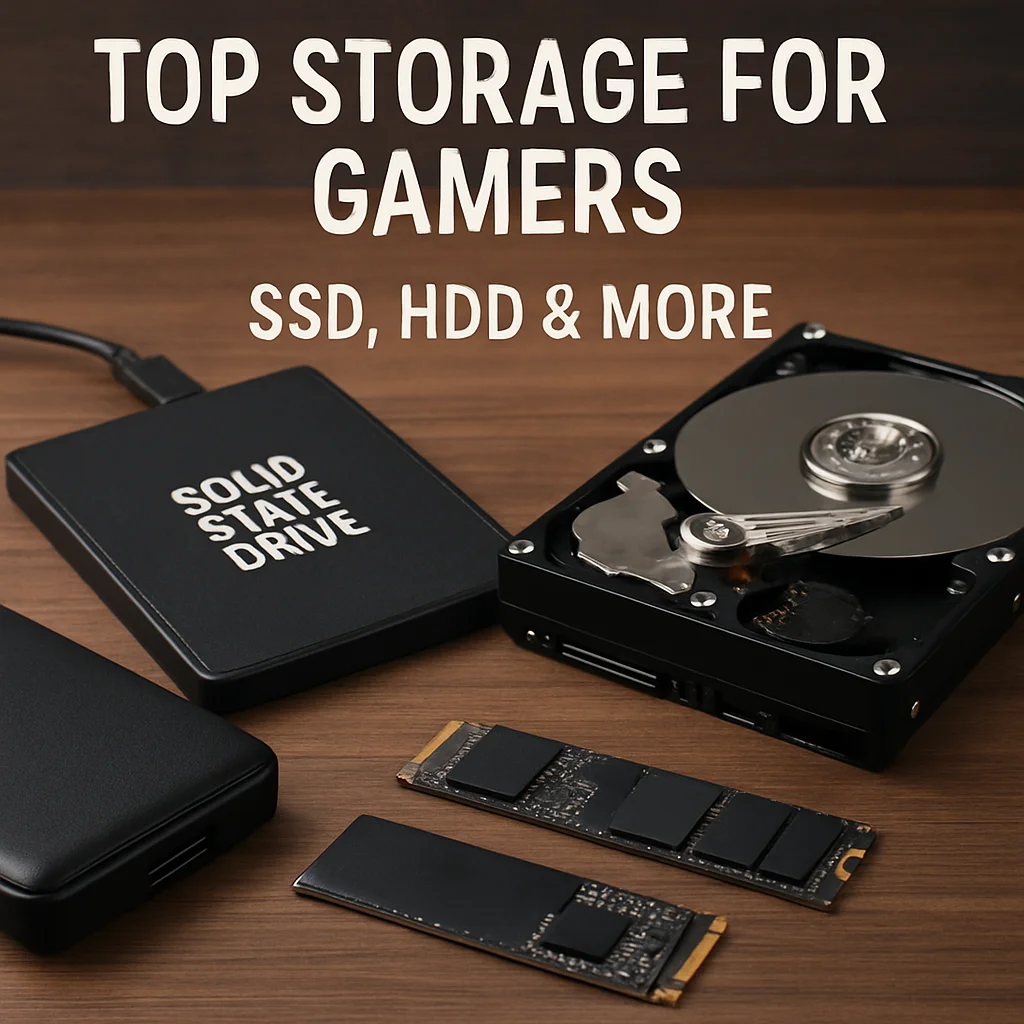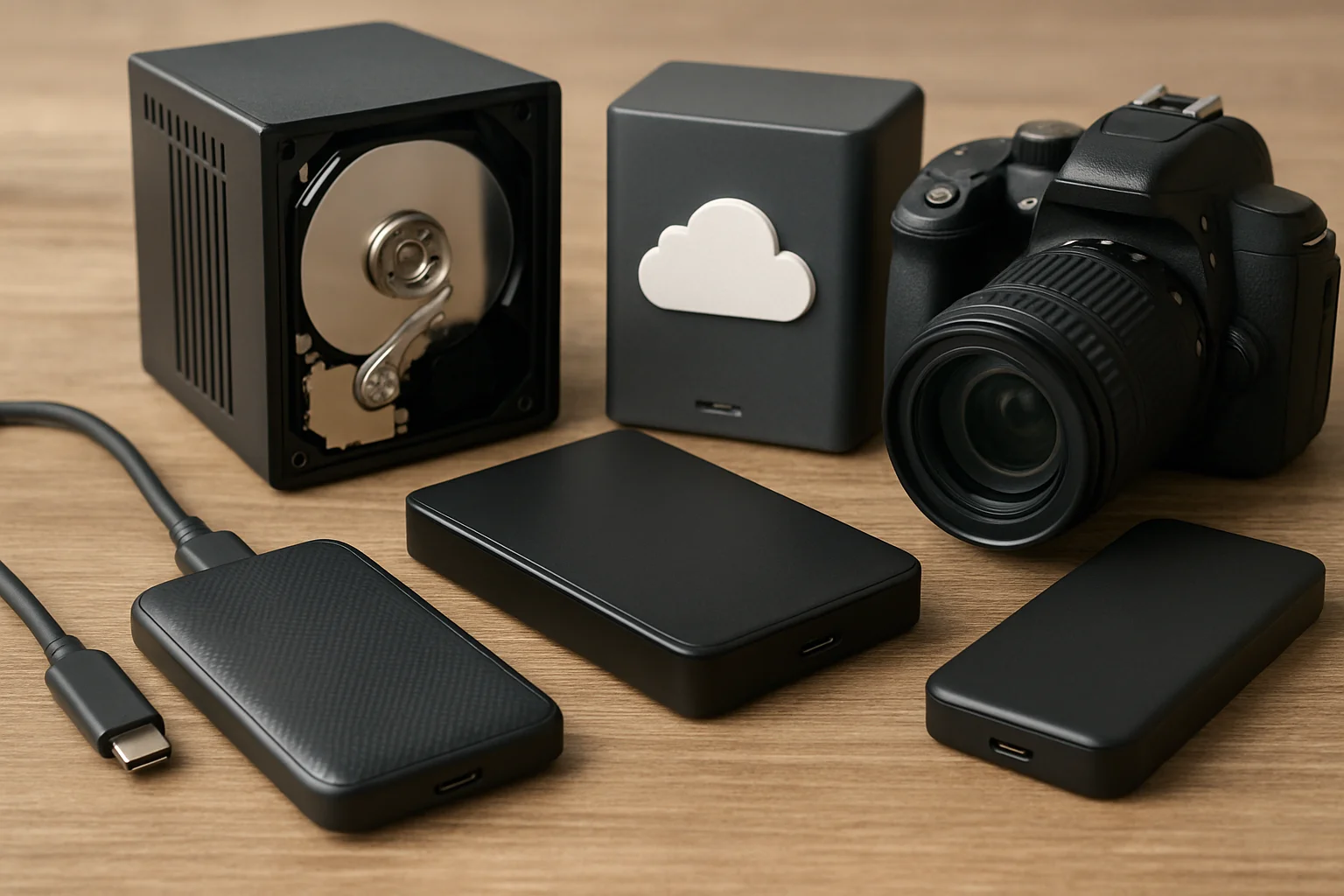Why Storage Matters for Gamers
For gamers, storage is more than just a place to keep files—it’s a critical component that directly impacts the gaming experience. Modern games often require dozens or even hundreds of gigabytes of storage space, and the speed at which data can be accessed can dramatically affect load times, in-game performance, and responsiveness.
When storage is slow or nearly full, gamers can experience frustrating delays such as extended loading screens, texture pop-ins, and even stuttering during gameplay. This is especially true for open-world or graphically intense games that stream large amounts of data dynamically.
Moreover, with frequent game updates, downloadable content (DLC), and mods becoming the norm, having sufficient and fast storage ensures that players can keep up with evolving game libraries without constantly juggling or deleting files.
Another important aspect is durability and reliability. Gaming sessions can be lengthy, and the constant reading and writing of data demand storage devices that can handle high workloads without failure. This is why many gamers prioritize SSDs or NVMe drives, which provide superior endurance and performance compared to traditional HDDs.
Finally, as the gaming industry embraces higher resolution textures, ray tracing, and more complex physics simulations, the demand on storage technology continues to grow. Choosing the right storage solution not only future-proofs your setup but also helps maintain a smooth and immersive gaming experience for years to come.
SSD vs HDD: Which is Best for Gaming?
When choosing storage for gaming, the two primary options are Solid State Drives (SSD) and Hard Disk Drives (HDD). Each has its strengths and weaknesses, and understanding these differences is key to selecting the right drive for your gaming setup.
Hard Disk Drives (HDDs) have been the traditional choice for storage due to their large capacities and relatively low cost per gigabyte. They use spinning magnetic disks to read and write data, which makes them slower compared to SSDs. For gamers, this means longer load times and potential delays when streaming large game assets. However, HDDs are still ideal if you need to store a large library of games without breaking the bank.
On the other hand, Solid State Drives (SSDs) use flash memory with no moving parts, enabling much faster data access speeds. This results in dramatically reduced game loading times, quicker level transitions, and smoother overall performance. SSDs also tend to be more resistant to physical shock, which adds a layer of reliability.
When it comes to gaming, the impact of SSDs is especially noticeable in open-world games or titles with frequent asset streaming, where faster storage can prevent stuttering or texture pop-ins. Many modern gaming consoles and high-end PCs now come equipped with SSDs for this very reason.
However, SSDs usually come at a higher price point, especially for larger capacities, which can limit how many games you can store without additional drives. Gamers often adopt a hybrid approach—using a smaller SSD for their most-played or performance-sensitive games and an HDD for bulk storage of less frequently played titles.
In summary, if your budget allows, investing in an SSD for gaming is highly recommended for the speed and responsiveness benefits. But if you prioritize capacity over speed or are on a tight budget, HDDs still provide valuable space for your growing game collection.
The Rise of NVMe Drives: Speed and Performance Boost
NVMe (Non-Volatile Memory Express) drives represent a significant leap forward in storage technology, specifically designed to take full advantage of the speed capabilities of modern flash memory. Unlike traditional SATA SSDs, which are limited by the older SATA interface, NVMe drives connect directly to the motherboard via the PCIe (Peripheral Component Interconnect Express) bus, offering much higher data transfer rates.
This difference translates into dramatically faster read and write speeds — often multiple times faster than SATA SSDs. For gamers, this means near-instantaneous game load times, faster level streaming, and reduced texture pop-ins, resulting in a noticeably smoother and more immersive experience.
Because NVMe drives use multiple data lanes on the PCIe bus, they can handle thousands of input/output operations per second (IOPS), which is critical for games that require frequent, rapid access to large amounts of data. This capability is particularly beneficial in open-world games, VR titles, and games with expansive environments or complex assets.
Another advantage of NVMe storage is its compact size and reduced power consumption compared to older storage solutions. Many NVMe drives come in the small M.2 form factor, which plugs directly into the motherboard without requiring additional cables, simplifying PC builds and improving airflow inside the case.
That said, while NVMe drives offer top-tier performance, they tend to be more expensive per gigabyte than SATA SSDs and HDDs. Still, their cost has been steadily decreasing, making them increasingly accessible to gamers looking to optimize both load times and overall system responsiveness.
For console gamers, NVMe drives have also become more relevant. The latest generation of consoles supports NVMe expansion, allowing players to upgrade storage with these high-speed drives, significantly enhancing game performance and reducing waiting times.
Cloud Storage for Gamers: Pros and Cons
Cloud storage has become an increasingly popular option for gamers looking to store their game saves, profiles, and sometimes even entire game files remotely. This approach leverages internet-based servers, allowing gamers to access their data from multiple devices without relying solely on local storage.
One of the biggest advantages of cloud storage is convenience and accessibility. Players can sync their progress across PCs, consoles, or even mobile devices, ensuring that their game data is always up to date no matter where they play. This is particularly useful for gamers who switch between platforms or need to reinstall games without worrying about losing progress.
Another benefit is space-saving. Cloud storage can help free up local disk space by offloading saves and backups to remote servers. Some services even offer options for storing entire games or large files, although this typically requires a stable and fast internet connection for smooth access.
However, cloud storage also has some drawbacks that gamers should consider. The most obvious is dependence on internet connectivity. Without a reliable and high-speed internet connection, uploading or downloading large files can be slow or impossible, causing delays or interruptions in gameplay.
There are also concerns about data security and privacy. While major cloud providers use encryption and strong security measures, storing sensitive game data or personal information online always carries some risk of breaches or unauthorized access.
Another limitation is storage capacity and cost. Many free cloud storage options provide limited space, and upgrading to larger plans often comes with recurring subscription fees. For gamers with large libraries or frequent save backups, these costs can add up over time.
Finally, cloud storage is not a direct substitute for fast local storage in terms of performance. While it helps with data management and backup, accessing games or assets stored remotely typically cannot match the speed of SSDs or NVMe drives connected directly to the system.
In summary, cloud storage offers flexibility and safety for game data but requires balancing internet reliability, costs, and security considerations to be effective for gamers.

